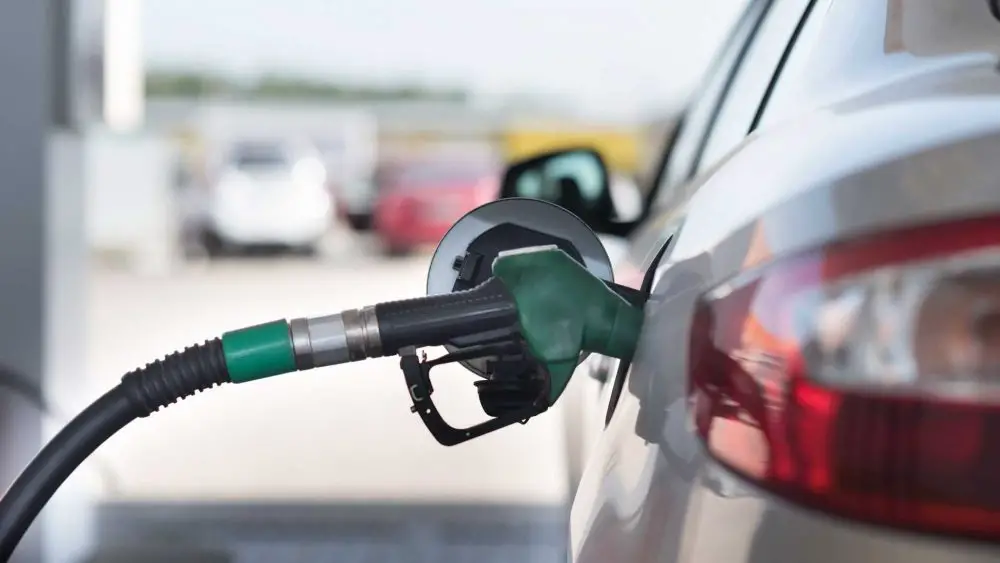Have you ever found yourself at the gas station more often than you’d like, wondering why your car seems to be guzzling fuel like there’s no tomorrow? You’re not alone. Many drivers experience higher fuel consumption than expected, leading to increased costs and frustration. How do i stop my car from consuming fuel? fear not! This comprehensive guide will delve deep into the reasons behind excessive fuel consumption and offer actionable tips to help you curb your car’s consumption for gasoline.
Understanding Fuel Consumption
What is Fuel Consumption?
Fuel consumption refers to the amount of fuel your car uses over a certain distance. It’s usually measured in miles per gallon (MPG) or liters per 100 kilometers (L/100 km). High fuel consumption means your car is using more fuel to travel the same distance, which can be both costly and environmentally unfriendly.
Factors Influencing Fuel Consumption
Numerous factors can influence how much fuel your car consumes. These include driving habits, vehicle maintenance, and even the type of fuel you use. Understanding these factors is the first step in reducing your car’s fuel consumption.
Common Reasons Why Your Car Consumes Too Much Fuel
1. Aggressive Driving
Sudden accelerations, hard braking, and speeding can significantly increase fuel consumption. Smooth and steady driving helps maintain optimal fuel efficiency.
2. Poor Vehicle Maintenance
Regular maintenance, such as oil changes, tire pressure checks, and air filter replacements, plays a crucial role in keeping your car’s fuel consumption in check. Neglecting these aspects can lead to higher fuel usage.
3. Underinflated Tires
Driving with underinflated tires creates more rolling resistance, which means your car needs to work harder and use more fuel to move.
4. Excessive Idling
Letting your car idle for extended periods wastes fuel. Turning off the engine when you’re stopped for more than a minute can save fuel and reduce emissions.
5. Heavy Loads
Carrying unnecessary weight in your car, such as heavy cargo or roof racks, increases fuel consumption. Lighter loads mean better fuel efficiency.
6. Short Trips
Frequent short trips, where the engine doesn’t reach its optimal operating temperature, can increase fuel consumption. Combine errands to reduce the number of short trips you make.
Tips to Reduce Fuel Consumption

1. Adopt Smooth Driving Habits
Driving smoothly and avoiding rapid accelerations and decelerations can significantly improve fuel efficiency. Aim to maintain a steady speed and anticipate traffic flow to minimize braking.
2. Keep Up with Regular Maintenance
Routine maintenance is essential for keeping your car in top shape. Regularly check and change the oil, replace air filters, and ensure your tires are properly inflated.
3. Lighten Your Load
Remove unnecessary items from your car to reduce weight. If you don’t need roof racks or carriers, take them off to decrease aerodynamic drag.
4. Avoid Excessive Idling
If you’re waiting in your car for more than a minute, turn off the engine. Modern cars don’t need to idle to warm up, and turning off the engine saves fuel.
5. Plan Your Trips
Combine errands and plan your routes to minimize the number of trips you take. This not only saves fuel but also reduces wear and tear on your car.
6. Use Cruise Control
On highways, use cruise control to maintain a constant speed, which can help improve fuel efficiency by preventing unnecessary acceleration and deceleration.
Advanced Guides on How to Stop Your Car from Consuming Too Much Fuel
1. Use the Right Fuel
Using the correct grade of fuel for your car, as recommended by the manufacturer, can optimize performance and fuel efficiency. Higher octane fuel isn’t always better for every vehicle.
2. Monitor Your Driving
Many modern cars come with fuel efficiency monitoring systems that provide real-time feedback on your driving habits. Use this information to adjust your driving style for better fuel economy.
3. Upgrade to Fuel-Efficient Tires
Consider investing in tires designed for fuel efficiency. These tires have lower rolling resistance, which can help improve your car’s overall fuel economy.
4. Maintain Optimal Tire Pressure
Check your tire pressure regularly and keep it at the recommended level. Underinflated tires can decrease fuel efficiency by creating more rolling resistance.
5. Regularly Service Your Engine
A well-tuned engine runs more efficiently. Follow your car manufacturer’s service schedule for regular engine tune-ups and check-ups.
6. Use Synthetic Oil
Synthetic oils can reduce engine friction and improve fuel efficiency. They often provide better performance under extreme temperatures compared to conventional oils.
7. Keep Your Car Aerodynamic
Reduce drag by keeping windows closed at high speeds and removing roof racks when not in use. Less drag means better fuel efficiency.
8. Upgrade Your Vehicle
If your car is old and inefficient, consider upgrading to a newer model with better fuel economy. Hybrid and electric vehicles are also excellent options for reducing fuel consumption.
Environmental and Financial Benefits
Reduced Carbon Footprint
Lowering your car’s fuel consumption helps reduce greenhouse gas emissions, contributing to a cleaner environment. Every gallon of gasoline burned releases about 20 pounds of CO2 into the atmosphere.
Cost Savings
Reducing fuel consumption directly translates to saving money at the pump. The less fuel your car uses, the less you spend on refueling.
Common Myths About Fuel Consumption
Premium Fuel Improves Mileage
Unless your car specifically requires premium fuel, using it won’t improve your mileage. Stick to the manufacturer’s recommended fuel type for the best performance.
Warming Up the Engine
Modern engines don’t need to be warmed up before driving. Idling to warm up your car wastes fuel and increases emissions.
Air Conditioning Always Reduces Fuel Efficiency
While using air conditioning does consume extra fuel, at highway speeds, open windows can create more drag than using the AC. Use the AC efficiently to balance comfort and fuel consumption.
Manual Transmissions are Always More Efficient
Advancements in automatic transmission technology have made many automatic cars more fuel-efficient than their manual counterparts. It depends on the specific vehicle.
Driving Smart: Fuel-Efficient Driving Techniques
Anticipate Traffic Flow
By anticipating traffic lights and the behavior of other drivers, you can avoid unnecessary stops and starts, which saves fuel.
Use Engine Braking
When going downhill, use engine braking instead of relying solely on the brakes. This technique can help save fuel and reduce wear on your brake system.
Accelerate Smoothly
Gradual acceleration uses less fuel than rapid acceleration. Apply gentle pressure to the accelerator pedal for better fuel economy.
Avoid High Speeds
Driving at high speeds increases fuel consumption. Stick to the speed limit to maximize fuel efficiency.
Use the Highest Gear Possible
Driving in the highest gear that doesn’t strain the engine can improve fuel efficiency. Higher gears lower engine RPM, saving fuel.
The Impact of Weather on Fuel Consumption
Cold Weather
Cold weather can increase fuel consumption because engines take longer to reach their optimal operating temperature. Use a block heater in extreme cold to warm up the engine before starting.
Hot Weather
High temperatures can also affect fuel efficiency. Use sunshades to keep your car cool and reduce the need for air conditioning.
Wind Resistance
Driving into a headwind can increase fuel consumption due to added resistance. Plan your trips to avoid driving in adverse weather conditions when possible.
Conclusion
By understanding the factors that influence fuel consumption and adopting better driving and maintenance habits, you can significantly reduce your car’s fuel usage. Not only will this save you money, but it will also contribute to a healthier environment. Remember, every little change you make can add up to substantial savings and a more efficient vehicle. Start implementing these tips today and enjoy the benefits of a fuel-efficient car.

